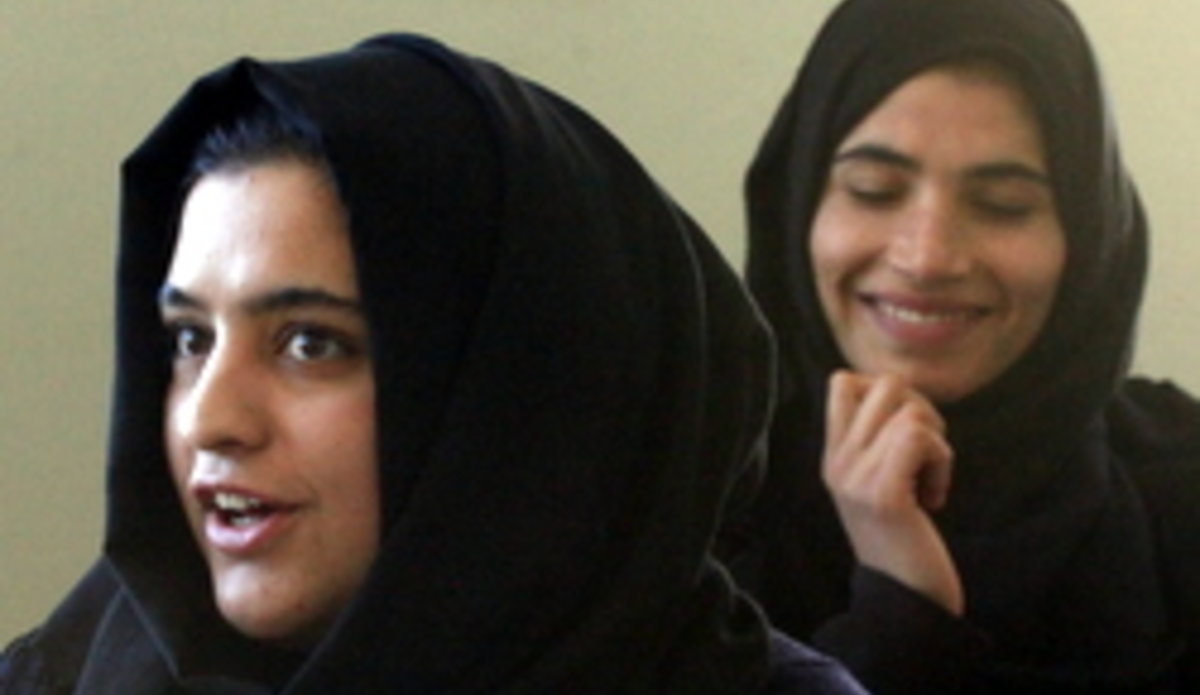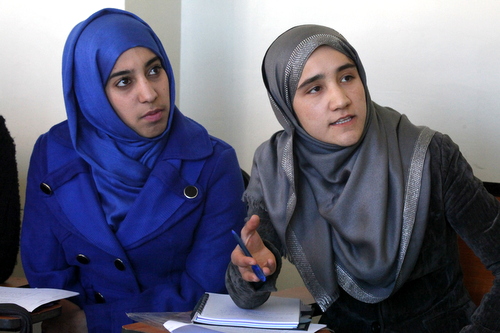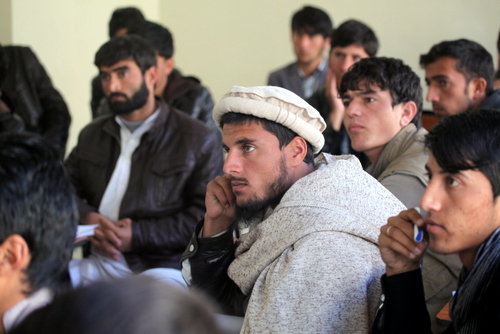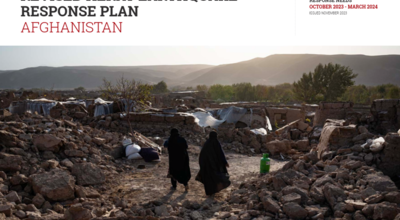Nationwide debates spotlight critical need to end violence against women
KABUL - Nationwide television and radio debates have spotlighted the critical importance of protecting women and girls from violence, as well as the requirement for authorities to meet their legal obligations.
The roundtable debates, backed by the United Nations, involved scholars, religious leaders, government officials and civil society members, and covered a broad spectrum of opinions on how best to end violence and prevent impunity. Issues included education as a way to raise awareness, judicial mechanisms to appropriately redress victims of violence, and greater participation of Afghan women in political and peace processes.
Many speakers called for information campaigns to secure further advances in protecting women and girls from violence.
“To reduce and eliminate violence against women, I request religious leaders and community elders to raise awareness among ordinary people, particularly young people, about women’s human rights,” said Nooria Hameedi, a civil society activist, during a discussion in the northeastern province of Baghlan.
At a similar roundtable in the eastern province of Nuristan, the governor of Nurgram district, Niamatullah Muslim, said women and girls need greater access to justice. He called on the Afghan government to encourage girls to study and urged community elders to refer cases of violence against women to the appropriate judicial organs.
The International Day for the Elimination of Violence against Women (EVAW) marks the beginning of “16 Days of Activism Against Gender-Based Violence,” a global information campaign designed to link violence against women with human rights issues.
According to a joint UN news release, violence against women and girls in Afghanistan remains endemic, and constitutes a violation of human rights impeding women’s full realization of their civil, political, social, cultural, economic and development rights.
“Afghan women and girls must be able to fully enjoy their freedom and contribute to the building of the nation,” said the UN Secretary-General’s Special Representative for Afghanistan, Nicholas Haysom. “There should be no place in Afghanistan for violence and discrimination against women and girls, and every effort is needed to end the impunity for such violent crimes.”
In the joint news release, the UN Women Country Representative in Afghanistan, Elzira Sagynbaeva, said that more than 80 per cent of women in Afghanistan face violence in their lifetime.
“We need to strengthen implementation of EVAW law,” said Ms. Sagynbaeva. “We also need to place more focus on preventing violence against women and girls, which requires the engagement of all segments of society, and especially men and boys as partners in gender equality and respectful relationships.”
In the interest of helping to address this issue, radio stations and television channels across Afghanistan have scheduled repeat broadcasts of the roundtable discussions.
The debates were conducted in the provinces of Kandahar, Nangarhar, Bamyan, Dai Kundi, Baghlan, Nuristan and Badakhshan, with more planned in more provinces in the days ahead.
Also today, speaking at a UN-backed event in the province of Panjshir, north of Kabul, university students discussed the need to increase awareness about the state laws that protect and defend the rights of women in Afghanistan. They called for effective implementation of the EVAW law.
During a discussion, Naseer Ahmed Noorbakhsh, an EVAW law expert and professor, said the cases of violence against women are mainly associated with “harmful and undesirable” social customs and traditions and also with a lack of awareness about the rights of women.
“The objective of implementing the EVAW law is to ensure and guarantee social justice and discipline in society,” said he said.
 UN
UN










